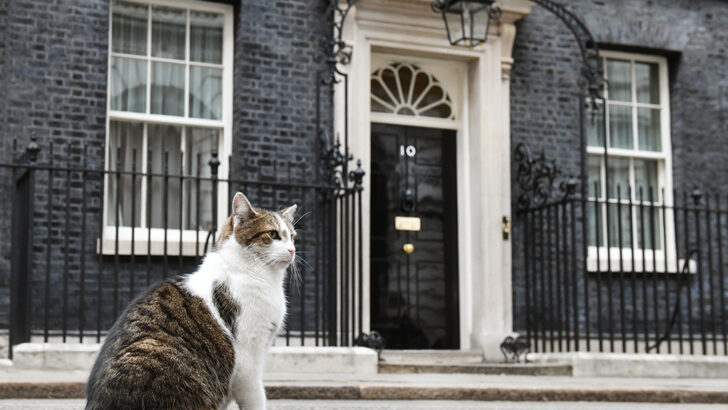Sport is one of those activities that I greatly approve of in theory, but, alas, in practice, find mostly rather boring.
I applaud the wonderful principles behind that motto so often advanced in times gone by – notably by the religious orders in education – mens sana in corpore sano: a healthy mind in a healthy body. Feeling glum about yourself? Go out and kick a football, or play a round of golf – do you all the good in the world.
Sport is full of character-building attributes and noble aims. When you lose – in a game, as in life – be a ‘good sport’ and take it with grace. The French even absorbed into their own language an English sporting phrase to symbolise general decency and justice: ‘le fair-play’.
Decency and equality of opportunity are also expressed through another sporting phrase: ‘a level playing-field’, meaning no one should avail of special privileges.
I can see the drama of aiming for a goal. I can appreciate the pride in county teams”
Sport teaches us team-work: and even though I still haven’t figured out the ‘off-side’ rule in football, I can appreciate the beauty of the way a group of players co-operate by passing the ball to one another through the choreographed movement of skill. Grand to see these lads so exuberantly embrace when a goal is scored!
I can see the drama of aiming for a goal. I can appreciate the pride in county teams, be it Galway or Armagh, and the breathtaking speed of a fine hurling match. Great moments in sport linger in many a fan’s memory for a lifetime.
I’m delighted when Ireland wins an Olympic medal. Hooray!
I’ll praise many aspects of sport – but don’t ask me to get involved in it, or watch more than fifteen minutes of almost any game.
Metaphor
Perhaps approving of something in principle, but being less fervent about its practice is another metaphor of life. Maybe a symbol of virtue itself: something to extol, rather than commit to?
And perhaps sport, like human nature, is also imperfect. There are cheats, egotists, avaricious and ill-tempered performers, just as there are sporting heroes. The tackier aspects of the opening French Olympics prompted some viewers to consider sport as outright decadence.
It’s a summer of sport, indeed. Fuel for thought, for me, rather than enthusiasm!
***
J. D. Vance – Trump’s potential Vice-President – has been much criticised for his allusions to “childless cat ladies” who have “no direct stake” in the future of America. He suggested they were “miserable with their own lives because of the choices they’ve made” – in an evident reference to the likes of Kamala Harris.
Cat ladies of all stripes are cross, and I include myself in this category. And while many cat ladies are mothers and grandmothers, we also cherish our cats, whose every whim we indulge.
Cats have featured richly in literature: from T.S. Eliot’s Old Possum’s Book of Practical Cats (from which the Cats musical is derived) to Saki’s famous tale of ‘Tobermory’ (a cat who was taught to talk, and told unvarnished truths). Kipling wrote a story ‘The Cat That Walked by Himself’ – and Maeve Brennan wrote about a lonely man whose only companion was a cat (‘I See You, Bianca’). The science-fiction writer Ursula le Guin delved into quantum mechanics with ‘Schrodinger’s Cat’.
James Joyce brings a cat’s meaningful presence into the opening chapter of Ulysses.
The philosopher John Gray wrote a short but engaging book called Feline Philosophy: Cats and the Meaning of Life, in which he suggested that the cat is a kind of Taoist – serene, aloof, rising above the undignified fusses of the everyday.
Granted, Mr Vance made his remark in 2021, and has tried to explain the context. But let lessons be learned: the most popular member of the British Prime Minister’s household at 10 Downing Street is Larry the cat!
***
Predictably, every British tabloid, and even the London Times, has repeated the urban myth that Edna O’Brien’s early books were “ceremonially” burned by a priest in Ireland. But no witness has ever come forward to provide evidence of this book-burning.
In 2015, the late Fr Tom Stack – a priest I knew well, a cultured man interested in literature – carried out an exhaustive search to locate anyone, anywhere, who had any information about this “ceremonial” book-burning. Prof John Horgan, of Dublin City University, also engaged in this search for the elusive book-burner (s). None was ever found.
Perhaps someone did throw one of Edna’s books onto a turf fire, for all we know, although the cost of doing so should be considered: a hardback book in the 1960s was usually seven shillings and sixpence, which was the equivalent of a week’s rent, and could be a third of a week’s pay.
Of course, it’s not too late for evidence of this “ceremonial” book-burning to emerge, if evidence – or witnesses – there are. But Tom Stack’s enquiries came to naught.


 Mary Kenny
Mary Kenny Resident cat Larry sits on Downing Street outside number 10 - the official office and residence of the British Prime Minister in London, UK. Photo: IStock/oversnap
Resident cat Larry sits on Downing Street outside number 10 - the official office and residence of the British Prime Minister in London, UK. Photo: IStock/oversnap 